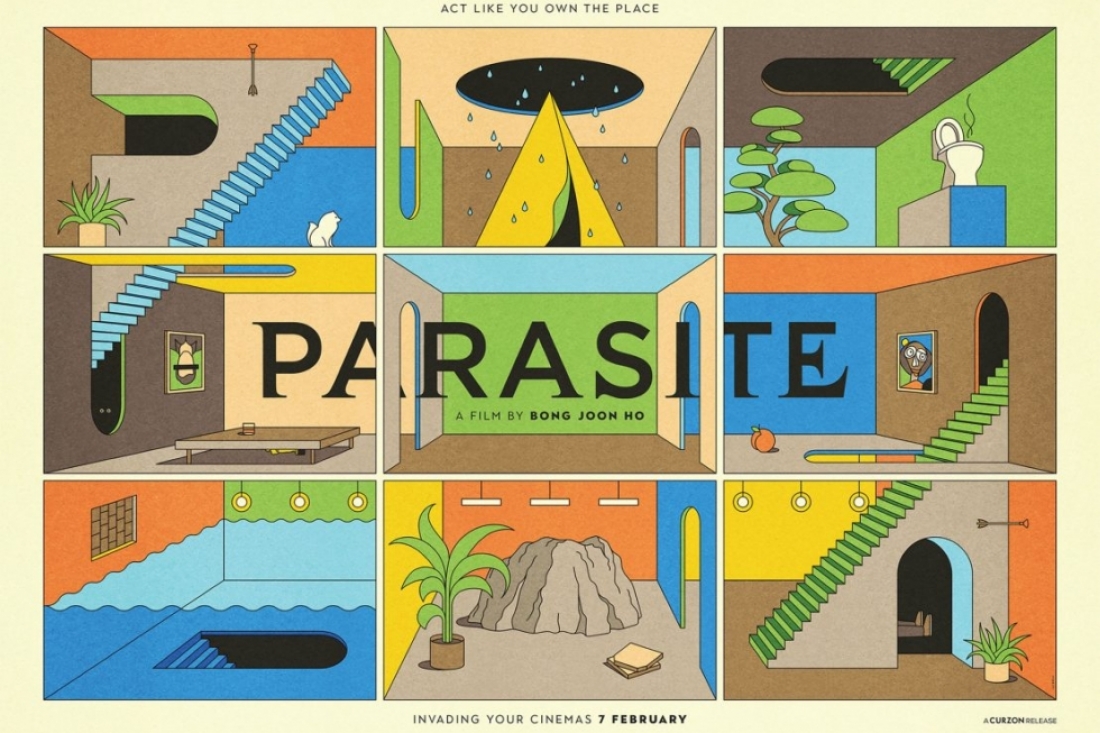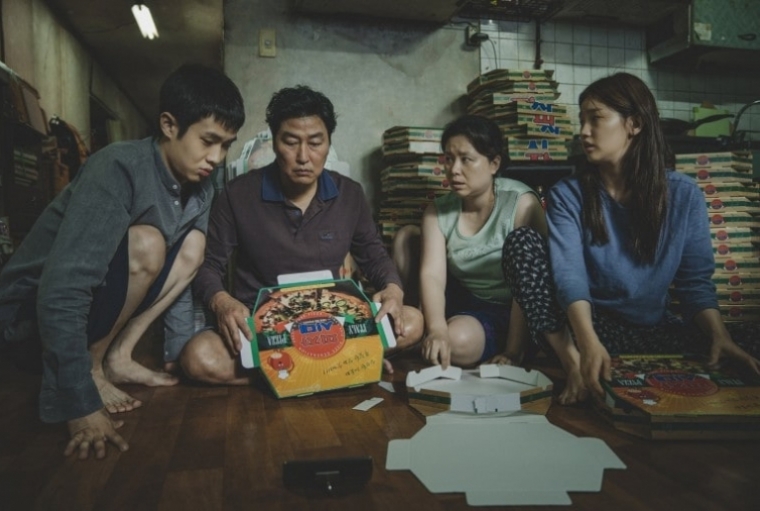

I find myself at a loss of words as I write this review for one of the best films that the world will ever see. Bong Joon Ho’s magnum opus, Parasite, had already garnered both critical and mainstream acclaim much before I had the opportunity to sit down and watch it. Naturally, the film’s appeal led me to assume much higher expectations than I generally do before I watch a film, but, Parasite is a film that would perhaps conquer the highest expectations one could ever have from the art, that is, cinema. Genre defying and bone chilling, Parasite is piece of cinema so brilliant, that my words would certainly fail in reviewing its genius, but I will nevertheless try.
The story set in present day South Korea, shows two families, the ultra-rich Park family, living in a huge mansion, and the other, Kim family, destitute, living in a semi-basement apartment. A series of comical and well planned events brings the families together as the Kims try to raise their socio-economic class, both through performance and actual work. While one enjoys the comedy, the huge divide between the two families, even as they spend so much time together, is not lost on anybody. In Bong Joon Ho’s characteristic style, the comedy is followed by a dark turn as the Kim family is faced with the actual parasite, living in the bunker of the Park family’s home, unbeknownst to them. This parasite is the husband of Park family’s former housekeeper, the former hiding from loan sharks and the latter having been replaced by Kim family’s devious tricks.

Film Still
Things go downhill — pun very much intended — from here on. The final acts of the film are gruesome and haunting. The rain floods out the Kim family’s home and as they spend their night homeless, the Park family appreciates the rain for clearing up the pollution and plan a lavish party for their son’s birthday. It is the scene of the party that creates the ironical backdrop for the murders that end up taking place. Everyone is led astray, most of them are dead, and as the father of the Kim family, having lost his sanity in a split second, acts as retribution for being treated inhumanly by the rich all his life, he is forced to flee and take refuge in the haunting bunker. After his son finally figures out where he is, Bong Joon Ho shows him narrating a letter to his father, while showcasing the visuals of the same, wherein he says that he will go to college, secure a high paying job and buy the Park family’s home so that his father can live freely again. You might think that this is the hopeful ending that one can live with but the director does not stop there. In the very last frame, the dreams of Kim family’s son are still only dreams, the reality is still as dingy as the semi-basement apartment that they lived in and where the last frame ends.
As the reality jerks those inside the film, it jerks those outside of it as well. As you sit and watch the last few scenes unfurl in front of you, especially the absolute last frame of the film, the nastiness of class divide in our capitalistic world suffocates you. There is no single genre or thematic concern that can completely define this film, but for me the most significant was the ruthless reality of our society’s division on the basis of affluence. Where has money led humanity today and who is the real parasite? Can those with no money really make their dreams come true, will this divide ever fade and will those with everything ever be more kind and considerate of those who have nothing? Many, many questions are asked by this film that uses beautiful symbolism like that of the stairs and the natural stone, a well paced and engaging screenplay, fantastic frames and incredible acting, to show the audience a mirror reflecting their own reality. The strange, bone-chilling effect of this film is a simple reminder of its brilliance that forces you to recognise the bubble of privilege that you live in as you realise how the world of Parasite is very much the world that you exist in.
Since a film is made up of so many minute components, it very rarely happens that all of those components come together harmoniously. Sometimes cinematography excels and the story lacks, some times acting and story surge while set design or production flounders. Such instances are endless but examples of a film, wherein storytelling, cinematography, set design, acting, music score and direction, all excel and create a euphony, are scarce, and Parasite is an important addition to this list of films. The film that has now shattered 92 years of Oscars history to become the first non-English film to win the award for Best Feature Film, stands at the acme of cinematic and narratorial prowess.
Text Nidhi Verma